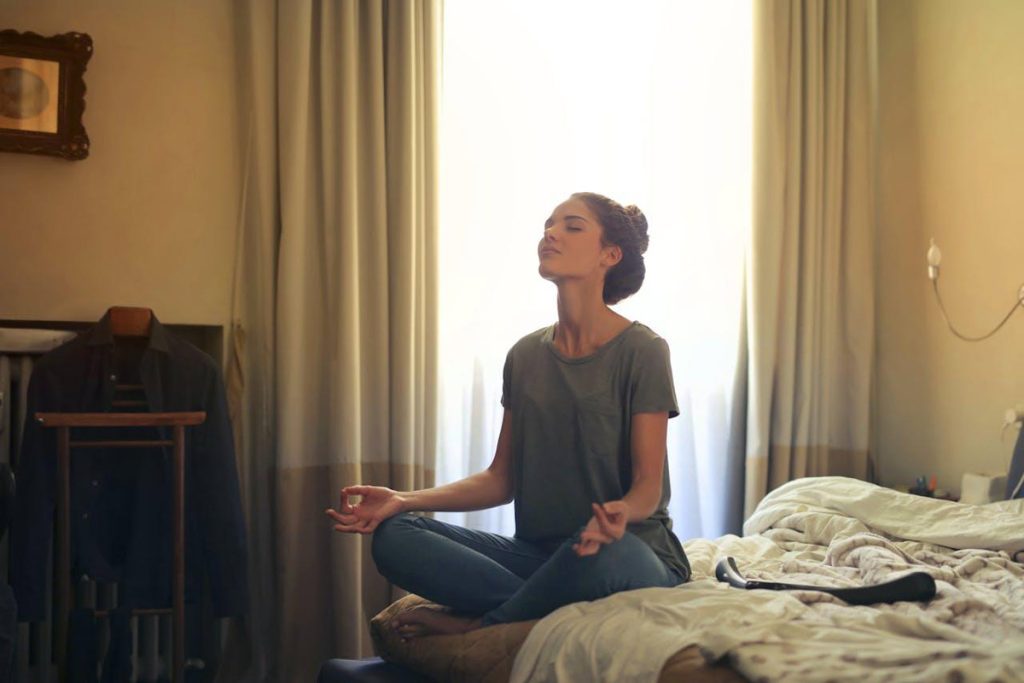Leading a busy life can make it easy to overlook your holistic wellness. You may already have valuable coping strategies, such as seeing a therapist or going to the gym to support physical health. Achieving mental and physical harmony can benefit more than just your health; it can also improve your quality of life.
While a holistic lifestyle might seem out of reach, adopting a mindfulness routine can be a simple yet impactful step. By their very nature, mindfulness exercises easily fit into everyday life.
Addressing the Sources and Impacts of Stress
Stress is a common issue that must be addressed if you want to achieve physical and mental harmony. Beyond the psychological symptoms of loss of sleep and anxiety, stress can lead to poor physical health. While some of the impacts of stress might include relatively mild symptoms, such as upset stomach and headaches, they can also be linked to heart pain. The extra work your heart has to do and accompanying elevated blood pressure might even increase your risk of cardiac arrest and other serious health issues.
Mindfulness routines focusing on stress are a powerful tool for your holistic well-being. Breathing exercises can be particularly good for managing your responses to stress. This is because deep breathing can activate your parasympathetic nervous function, promoting calmness throughout the body. Your approach can be as simple as spending a little time breathing in for four counts and then breathing out for twice as long.
Another way to manage the physical and psychological effects of stress is to exercise self-compassion. When facing challenges and high-pressure situations, it’s easy to think badly of yourself. You might question your ability to cope and bounce back with resilience. These negative thoughts only serve to exacerbate stress. Instead, step back and look at the reality of the situation. Recognize your positive attributes and — if you’ve made mistakes — understand that this is a natural human trait. A little self-kindness can go a long way.
Re-energizing and Renewing
Feeling exhausted can impact you in many ways. Indeed, the reasons for feeling tired often involve a combination of physical and mental factors. Insufficient sleep not only results in physical exhaustion but can also keep you trapped in cycles of psychological unwellness. Iron deficiency can affect energy levels while also contributing to lightheadedness. Chronic fatigue syndrome can be an intensely frustrating, depressing, and exhausting experience, which is not always relieved by rest alone.
Your actions to re-energize and renew yourself are essential to your quality of life. Some of the mindfulness practices that can help include:
- Meditation: Regular meditation can help to re-energize you in some circumstances. Studies have shown that meditation techniques can stimulate the prefrontal cortex. This part of the brain influences focus, problem-solving, and mental acuity. The relaxing effects of meditation may also help you manage the release of cortisol — the stress hormone — contributing to healthier sleep cycles and better energy levels.
- Mindful movement: Exhaustion can make it challenging to be active. At the same time, the tendency to remain inactive may exacerbate your energy slump. Mindful movement routines can help you ease into exercise and give you a small energy bump. A gentle yoga routine is an excellent example, as it promotes awareness of your body’s needs while stimulating it with exercise.
But mindfulness isn’t a wonder cure for tiredness. It’s best combined with other aspects of physical and mental wellness, such as a healthy diet and sleep routine. If your tiredness is related to a medical condition or mental health disorder, talk to your physician about mindful movement techniques and how they fit with other forms of therapy you’re pursuing.
Listening to Your Gut
Your digestive health is a core aspect of physical and mental harmony. Most people are aware of how food can affect their physical well-being. There’s also increasing recognition of how gut health influences psychological wellness. Studies have shown that the well-being of your microbiome — the ecosystem of microorganisms in your digestive tract — influences mood, cognition, and overall quality of life.
So, how can mindfulness help you in this regard? Well, it begins with taking the time to listen a little closer to what your body is telling you about the food you’re giving it. For instance, overeating can not just lead to obesity — and the psychological factors associated with it — but also unwellness and discomfort. Eating more slowly and mindfully, giving your brain time to receive the signals of fullness from your stomach, helps you know when to finish your meal.
Another step is to pay closer attention to your body’s signs of hunger. Sometimes, signals that may appear to be food cravings are indications of something else. It’s not unusual to misread boredom, depression, or anxiety as hunger. Rather than reach for the nearest snack, check in with your feelings to figure out what’s driving your appetite. That said, food can be an excellent means of regaining comfort amidst anxiety. The key is to eat foods that are kind to your physical and mental health, such as fruit in place of sweet snacks or fermented vegetables that help balance and maintain your microbiome.
Conclusion
With a range of mindfulness exercises, you can harmonize your mental and physical wellness. This process can involve everything from targeted stress-busting routines to listening a little closer to your gut. It’s essential to remember that everybody’s needs are different. When adopting such measures, pay attention to your body and mind responses and make adjustments that mesh best with your holistic self.
About the Author: Katie Brenneman is a passionate writer specializing in lifestyle, mental health, education, and fitness-related content. When she isn’t writing, you can find her with her nose buried in a book or hiking with her dog, Charlie. To connect with Katie, you can follow her on Twitter, @KatieBWrites93.
Image Source: Pexels
The opinions and views expressed in any guest blog post do not necessarily reflect those of www.rtor.org or its sponsor, Laurel House, Inc. The author and www.rtor.org have no affiliations with any products or services mentioned in the article or linked to therein. Guest Authors may have affiliations to products mentioned or linked to in their author bios.
Recommended for You
- Overcoming Addiction: A Therapist’s Journey of Recovery - April 18, 2025
- How a Health Cleanse Can Reset Your Body and Mind - April 16, 2025
- The Truth about Relapse in Addiction Recovery - April 14, 2025





